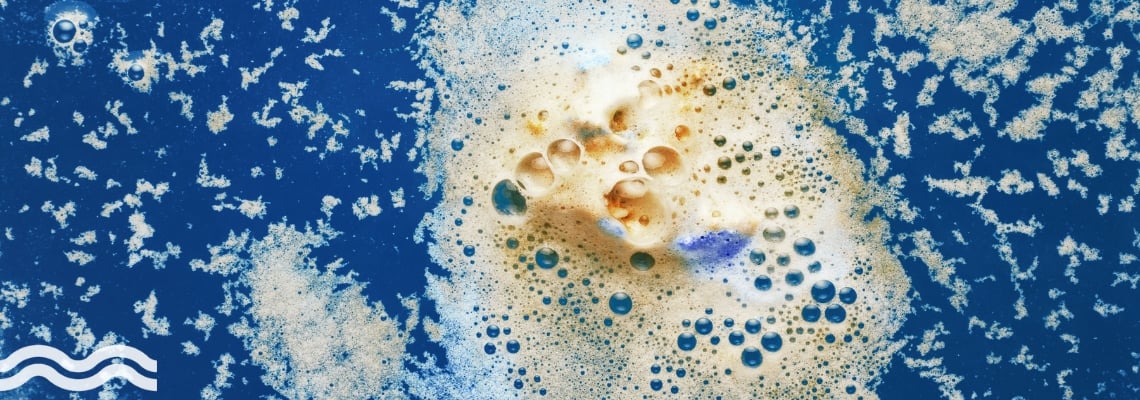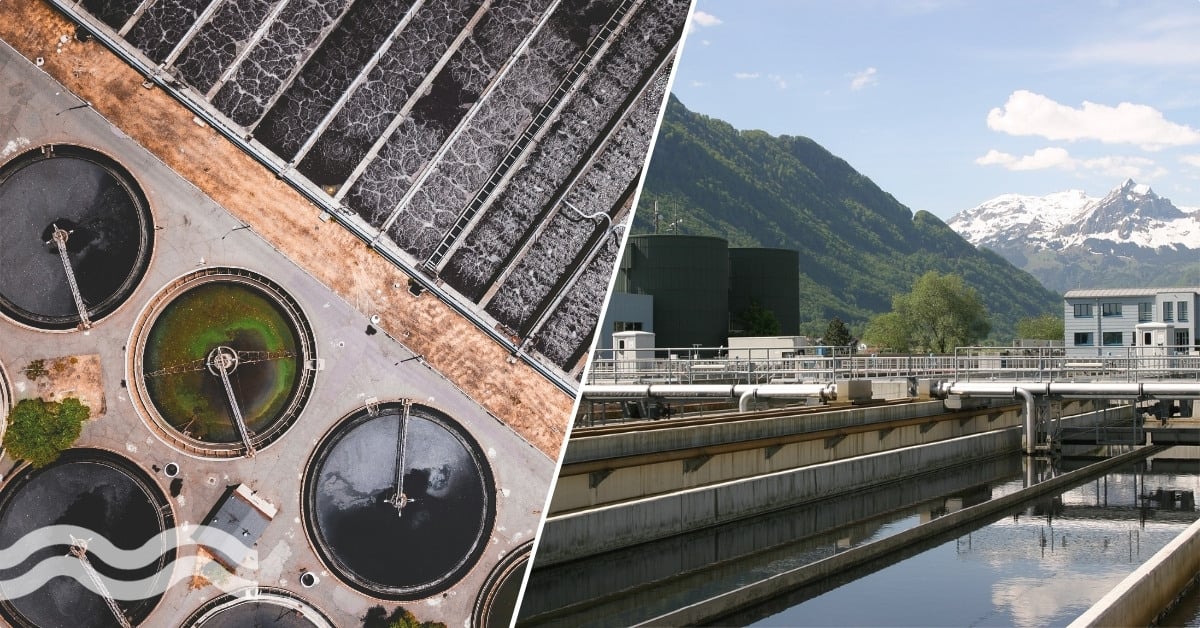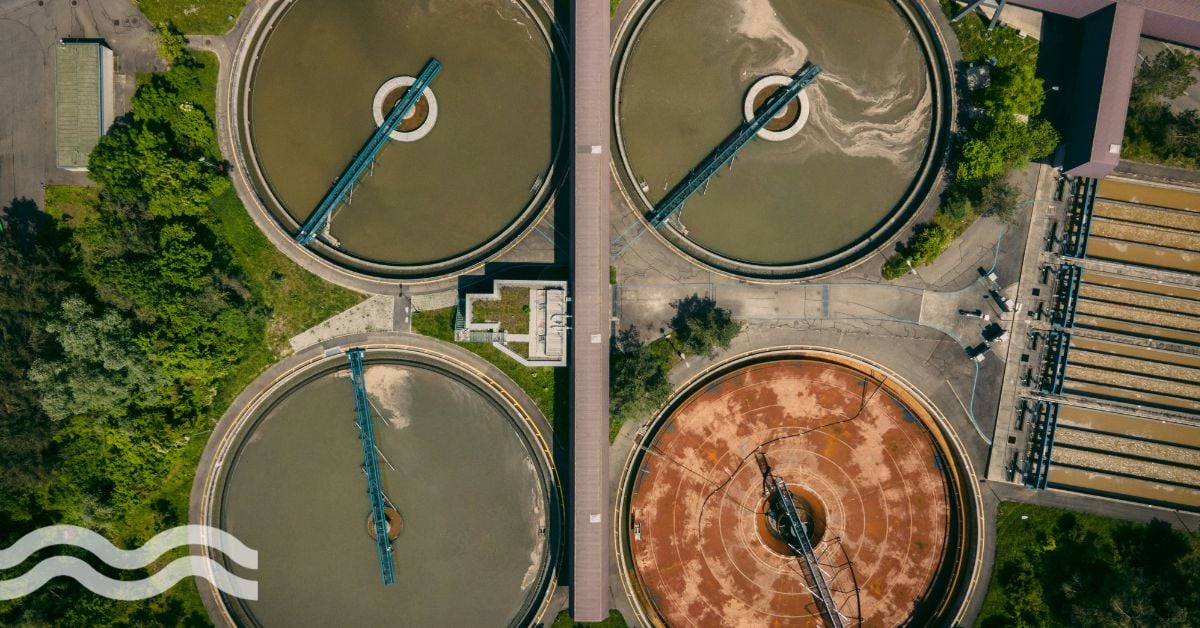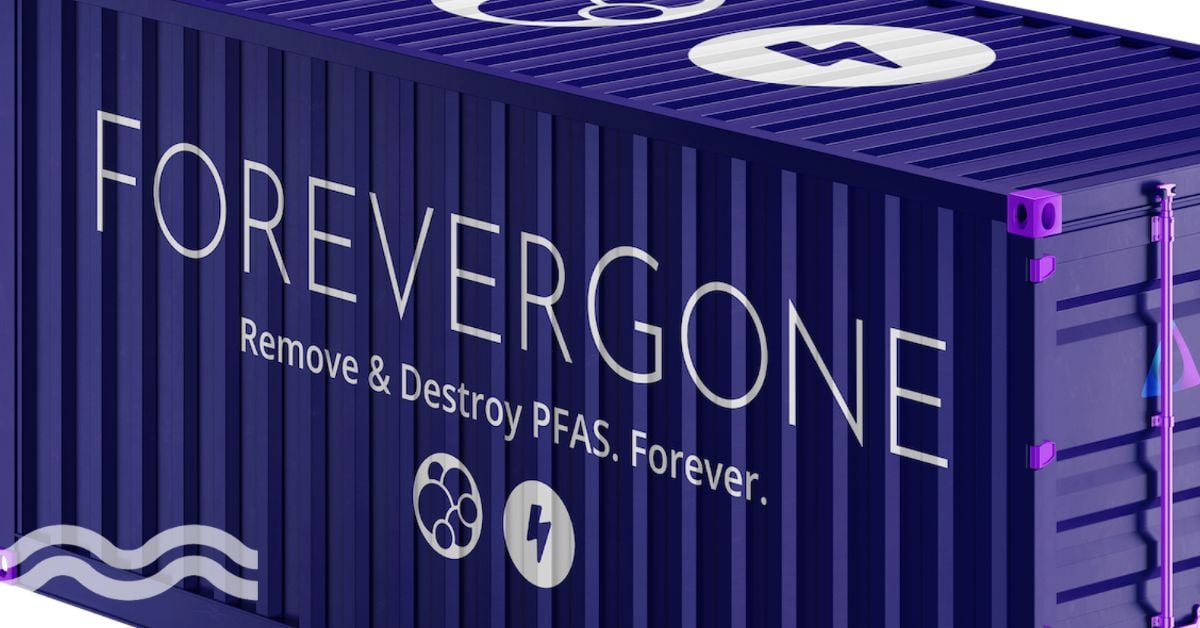Aquapreneurs turning the tide on water pollution
Ten aquapreneurs are being helped to scale innovative technology that has the potential to provide clean water after winning the UpLink Tackling Water Pollution challenge. The companies will join the UpLink Innovation Ecosystem, a collaboration which aims to unlock the potential of early-stage innovation.
The challenge of tackling water pollution
The Tackling Water Pollution challenge was run by UpLink, an open innovation platform that creates bridges for entrepreneurs to connect to investors, corporate partners, experts and other organisations that can help them grow and bring products to market that can help meet real-world problems.
The initiative aims to raise awareness of the early-stage water innovation ecosystem and promote the most scalable solutions across the sector. It stems from a five-year collaboration between UpLink and HCL Group's Aquapreneur Innovation Initiative, with support from the World Economic Forum's Centre for Nature and Climate's water initiatives. This collaboration aims to unlock the potential of early-stage innovation by creating an ecosystem to empower 'Aquapreneurs' to scale breakthrough technologies that can transform water management.
Gaëtane Suzenet, co-founder, European Water Tech Accelerator, told Aquatech Online: "The winners of the Tackling Water Pollution Challenge are true Aquapreneurs and visionaries who are reshaping the future of water management."
She added: "Through their groundbreaking solutions, they prove that with vision, innovation, and purpose, the greatest environmental and pollution challenges can be overcome, and entrepreneurship and water management can flow in harmony."
The five-year Aquapreneur Innovation Initiative aims to find innovative solutions to conserve and restore freshwater ecosystems. Tackling Water Pollution was the third of five planned innovation challenges.
The challenge in numbers
The challenge ran from May to August 2024 and received 273 submissions, from which 10 solutions were chosen to join the UpLink Innovation Ecosystem.
The challenge was funded by HCL Group and seven ecosystem partners: Arup; AtkinsRéalis; BlueTech Research; IKEA; Imagine H20; Mazarine; and National Alliance for Water Innovation.
The need for fresh solutions
The UpLink challenge presents the need for innovative solutions that can be scaled to address the world's water challenges, particularly in providing clean water. With 80 per cent of wastewater left untreated before being released into the world's rivers, lakes, and oceans. This is estimated to cause 485,000 deaths annually and lead economic losses totalling approximately $252 billion. The world's nations also face the rising costs of dealing with pollution of our water ecosystems and drinking water with microplastics and per- and polyfluoroalkyl substances (PFAS) which number in their thousands and are collectively termed 'forever chemicals'.
As Suzenet and co-author Tania Strauss, head, Food and Water, World Economic Forum, writing on the WEForum website, state: "Investing in water innovation will be at the forefront of positive change towards more productive and less polluted freshwater systems."
The 10 winners announced
The winners of the challenge have developed various solutions to tackle water pollution.
FREDsense
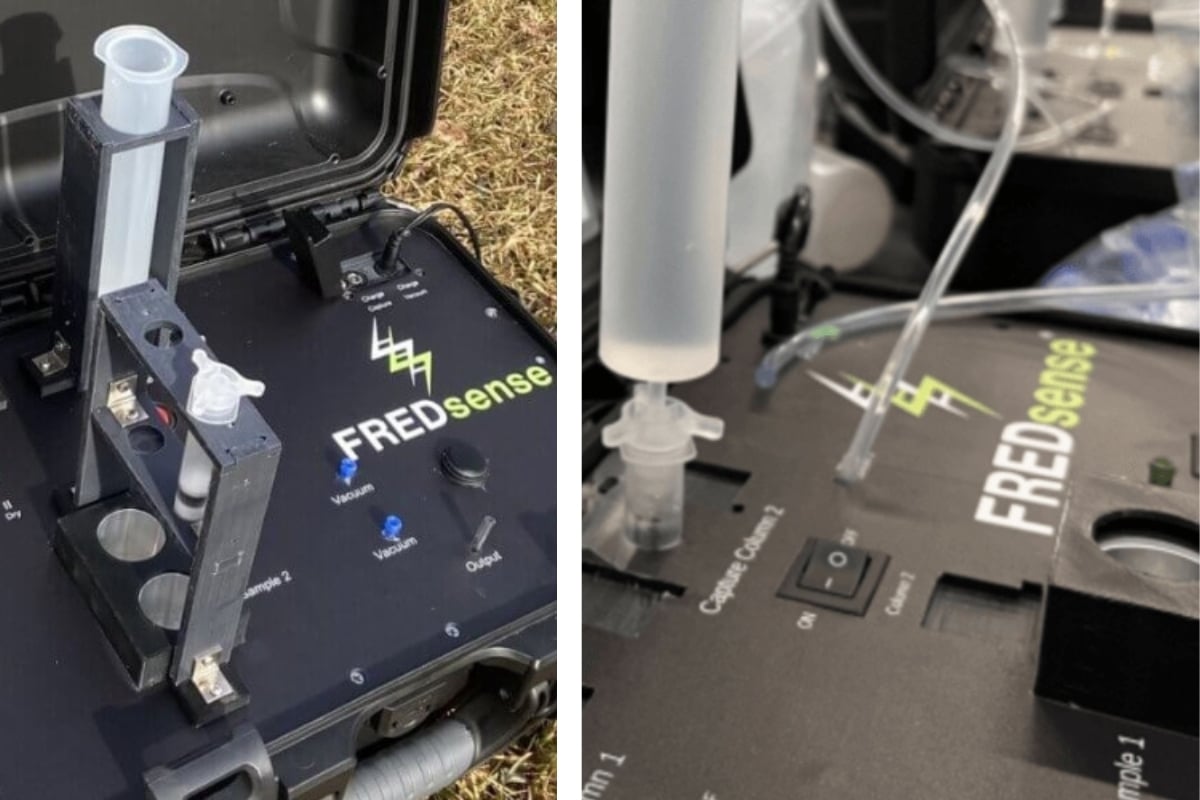
Canada's FREDsense has developed a portable field kit that provides a real-time solution for measuring PFAS in water. The company has combined a novel polymer with a fluorescence-based output into a single portable unit that can deliver PFAS measurements from multiple samples in the field. This drastically reduces wait time for PFAS measurement from up to 16 weeks in a lab for traditional techniques to a matter of hours, all delivered on-site.
The dramatic reduction in the time it takes to analyse PFAS contamination, combined with the cost-savings and portability of FREDsense's kits, allows municipalities, industrial water users, and environmental consultants to collect the information they need to test water sources and protect public health more rapidly and expansively.
David Lloyd, CEO and co-founder, FREDsense Technologies, told Aquatech Online: "We are incredibly excited and humbled to be selected as a winner of the Uplink Water Pollution Challenge award. At FREDsense we believe that real-time data is key in the water industry and our portable PFAS monitoring tool has the ability to change the game for so many in our world. This competition highlights how we can work together to make a huge impact on water quality and support our ability to bring real-time PFAS testing to the market."
Aquagga
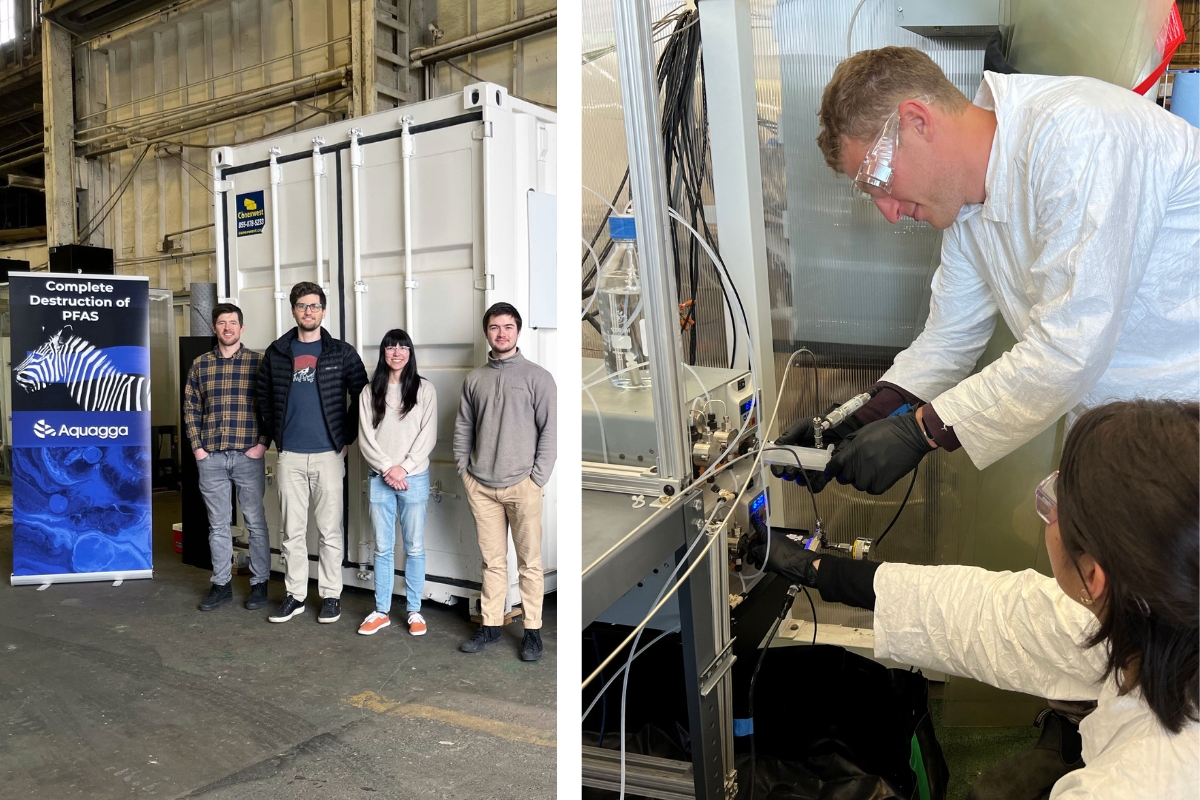
Aquagga, a start-up from Tacoma, USA, has developed a novel process for PFAS destruction at source. Their proprietary hydrothermal alkaline treatment (HALT) technology can destroy short and long-chain PFAS compounds without producing toxic byproducts. The technology can also treat PFAS-contaminated water through a continuous flow (as opposed to a batch) process. This facilitates its interoperability with existing industrial production processes.
As regulations to prevent PFAS contamination are coming into effect, Aquagga's HALT technology provides a solution for industrial manufacturers looking to reduce the negative externalities of their production processes on public water sources and reduce population exposure levels to PFAS.
Chris Woodruff, COO and co-founder, Aquagga, told Aquatech Online: "We are honoured to be recognised alongside a number of inspiring companies dedicated to protecting our global water resources. We look forward to working with the ecosystem partners to continue advancing our PFAS destruction technology to create a safer, cleaner environment for communities worldwide."
Mimbly
Mimbly, a start-up from Gothenburg, Sweden, has created a simple solution to reduce microplastic pollution during the laundry cycle. Mimbly's "Mimbox" is an add-on device for washing machines that contains a patented self-cleaning filtering technology. The Mimbox captures microplastics released from clothing while it is being washed, preventing them from entering public wastewater systems. It also offers cost savings for users by reducing washing machine water consumption by up to 70 per cent and decreasing energy consumption by up to 30 per cent.
Alongside reducing microplastic pollution and cost savings, the Mimbox is equipped with sensors that collect diagnostic data to improve washing machine maintenance and increase the longevity of the appliances.
Oxyle

Oxyle's breakthrough PFAS destruction solution empowers industrial and environmental remediation companies in their fight against water contamination. The solution doesn't just filter or adsorb PFAS but eliminates it entirely to below detection limits. With 50x lower average energy consumption than other destructive treatments, it is the most energy efficient, cost-effective treatment on the market. Established in 2020, Oxyle is on a mission to protect our water from PFAS - down to the last drop.
Fajer Mushtaq, CEO and co-founder, Oxyle, told Aquatech Online: "Being named an UpLink Top Innovator is a huge honour. It means joining forces with an incredible group of innovators who are equally committed to restoring and protecting our waters. With the support of HCL Group and UpLink, we're in a much stronger position to scale the solutions the world urgently needs."
FungiLife
Fungi Life is a biotechnology startup dedicated to developing sustainable solutions for industrial challenges by harnessing the unique capabilities of fungi. Founded in 2022, the company focused on creating eco-friendly bioingredients such as biosurfactants, enzymes, and pigments to replace petrochemical-based products across various sectors, including cleaning, cosmetics, and bioremediation. FungiLife's mission is to drive industrial decarbonization and environmental sustainability through innovative, nature-based technologies.
The solution uses a proprietary fungal strain from the Xylariaceae family, which offers unique bioactive compounds with significant potential for diverse industrial applications. The team has developed a robust biotechnological platform that enables the production of these bioingredients at scale, providing a low-cost, circular approach that supports sustainable supply chains.
WASE
WASE's solution prevents wastewater contamination from food and drink manufacturers by treating it directly onsite, removing the potential for discharge into the environment and removing the need for trucks which increase CO2 emissions.
Wastewater and organic waste is treated onsite and turned it into biogas using the WASE's electro-methanogenic reactor technology, to increase biomethane generation by 30 per cent, unlocking the full value of waste. This can be coupled with the WASE intelligence platform which can automate and optimise a plant using biosensing and soft-sensing capabilities. This allows a 'hands off' operation that delivers actionable insights for maximising treatment efficiency and microbial conversion of organics into biomethane.
Sentry
The SENTRY team has developed and is commercialising a bio-electrode sensor platform that can be used to monitor water quality and provide actionable alerts to clients. It has no moving parts and is built to harness the biofilm present in every water environment ─ that would normally result in the need for maintenance ─ as part of the sensing process.
The sensor provides a direct measure of the "Consumable BOD (mg/L)" being consumed in real-time by the biomass in-situ in the water environment. The data is communicated as an 'alarm' notification if it is outside of normal operating standards.
By providing real-time data, SENTRY™ enables proactive management of treatment processes, reducing energy consumption by 10-40% and improving overall treatment performance.
Fluidion
Fluidion has developed an affordable, field-deployable, water safety monitoring instrumentation system called ALERT. This enables real-time, accurate water quality monitoring, enabling proactive responses to contamination. It enables effective autonomous laboratory-free water safety management strategies that can be used in various applications, from urban environments to remote or resource-limited settings.
By providing rapid microbiology risk assessments in a highly-portable and autonomous form factor, ALERT provides an invaluable tool for protecting the water resource. This extends from remote or resource-constrained areas, to polluted urban rivers.
Syrinx
Syrinx aims to prevent contamination at source with EnPhytoBox, a mobile, decentralised technology that can treat water to a high quality before discharge, either to the environment, or for reuse.
EnPhytoBox combines decentralised, nature-based technology with centralised IoT, which enables highly scalable and distributed water treatment systems to be located almost anywhere, be locally managed, but governed digitally. It can even be bolted onto existing wastewater treatment plants to help them meet tighter regulations, or to handle combined sewer overflow issues within the network.
DigitalPaani
DigitalPaani uses IoT software to drive operational excellence in water management, helping to tackle water scarcity by acting used to treat approximately 95 million litres of water a day in office units in India.
We promise never to send you spam and you can unsubscribe at any time!
